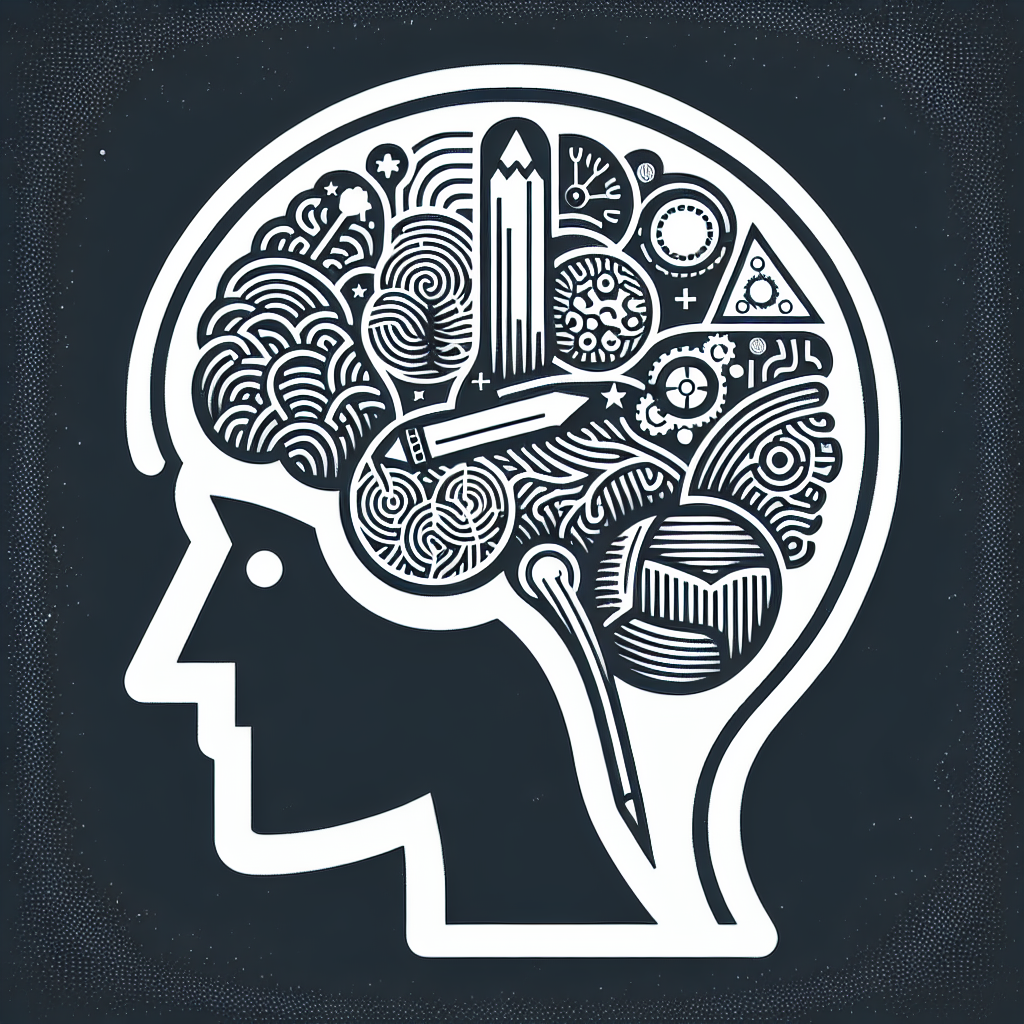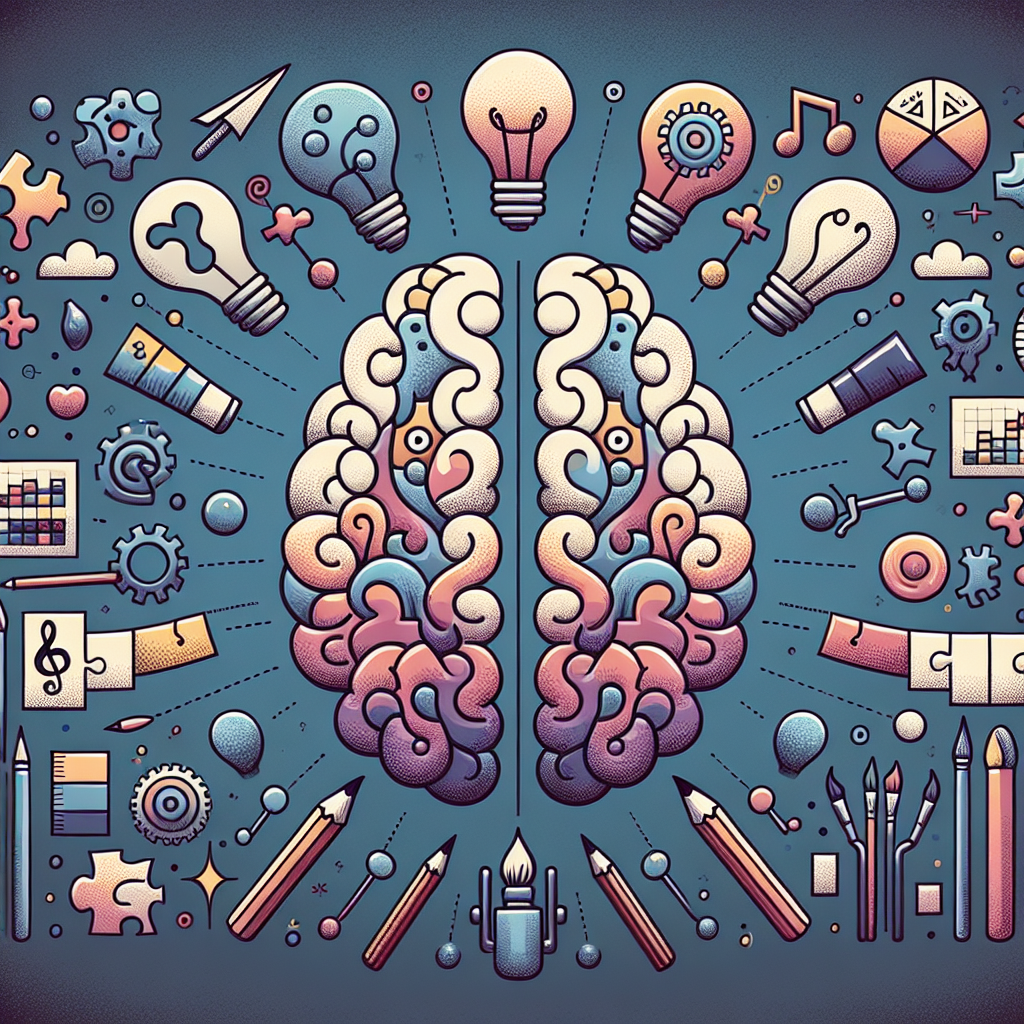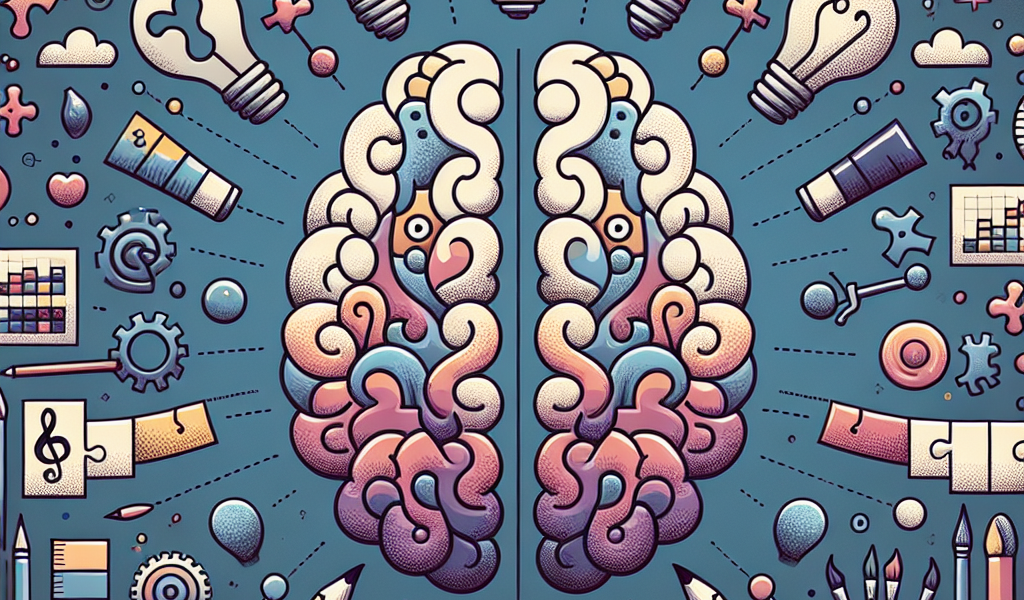Can Brain Training Exercises Enhance Creativity And Problem-solving Abilities?
As you explore the fascinating world of neuroscience and personal development, you’ll inevitably stumble upon the intriguing prospect of brain training exercises. “Can Brain Training Exercises Enhance Creativity and Problem-solving Abilities?” sets out to demystify this question for you. It walks you through various brain training techniques, their psychological implications, and potential results, providing you with a richer understanding of how these exercises could in fact sharpen your creativity and improve your problem-solving prowess.

Understanding the Concept of Brain Training
Brain training, quite simply, refers to mental exercises aimed at maintaining or improving cognitive abilities. It’s like a mental workout, meant to keep your brain fit and sharp. Just as you would train your body with physical exercises, brain training focuses on mental exercises to enhance various cognitive functions.
Definition of Brain Training
Brain training encompasses activities designed to enhance cognitive functions such as memory, concentration, problem-solving skills, spatial reasoning, and many others. It includes everything from puzzles and quizzes to computer games and apps. It’s based on the principle of neuroplasticity, which suggests that our brains aren’t static entities, but rather models of adaptability, shaped and reshaped by experiences.
The Objective of Brain Training
Besides keeping the jeopardy skills sharp, the objective of brain training is ultimately to enhance overall cognitive function. It aims at improving memory, rational thought, creativity, concentration, and even mood. Just as physical exercises contribute to the overall wellbeing of the body, brain training contributes to the wellbeing of the mind.
Various Forms of Brain Training
There are numerous ways to train the brain. These methods range from traditional to technological. Examples include puzzles like crosswords or Sudoku, reading books, learning new languages, playing musical instruments. Technological methods, on the other hand, involve brain-training apps and computer games that feature mental exercises.
Neuroscience Behind Creativity and Problem-solving
Your brain plays a fundamental role in creativity and problem-solving. These cognitive functions rely on a complex interplay of various brain regions, networks, and processes.
The Fundamental Role of the Brain in Creativity
Creativity is not limited to just a single brain region or hemisphere. It crosses both hemispheres, involving many regions that collaborate via networks. The right brain is known for being intuitive and artistic, while the left brain is more logical. But when engaged in creative processes, both work together.
How the Brain Solves Problems
When it comes to problem-solving, your brain again uses multiple regions and networks. The prefrontal cortex bears the brunt of the work, managing information and making decisions. Interestingly, the brain uses more resources and energy during problem-solving compared to other activities, demonstrating its complexity.
Neuroplasticity and Its Effect on Brain Functionality
At the basis of brain training lies the fascinating concept of neuroplasticity. This is the brain’s ability to change, adapt, and rewire itself in response to new experiences, learning, and cognitive exercises. Neuroplasticity can thus bolster cognitive functions and help improve creativity and problem-solving skills over time.
Current Research on Brain Training
Brain training is a popular topic in today’s neuroscience research. These studies primarily focus on the effects of brain training on memory and cognitive function, and how they translate to real-world scenarios.
Effects of Brain Training on Memory and Cognitive Function
Research has shown that brain training exercises can indeed improve memory and cognitive function. Studies have shown improvements in various aspects like working memory, processing speed, and executive functions due to brain training.
Does Brain Training Translate to Real World Scenarios?
A key question many ask is whether brain training can improve everyday cognitive functions like remembering names, solving problems at work, or navigating new places. Studies show mixed results, but they suggest that certain brain training exercises can translate to improvements in daily cognitive tasks.
Potential Limitations in Current Research
However, it is crucial to note there may be potential limitations in current brain training research. The benefits witnessed in a laboratory setting might not always translate the same way to everyday life. There is also a question of exactly which types of exercises deliver the best results, and how long these effects really last.

The Link Between Brain Training and Creativity
Could brain training enhance creativity? This is a novel area of focus, but early indications suggest a promising link between the two.
How Brain Training Could Potentially Enhance Creativity
Certain forms of brain training, such as puzzles or brain training apps, could potentially stimulate imagination, foster innovative thinking, and thereby enhance creativity. It also encourages a flexible mindset necessary for creative thinking.
Examples of Brain Training Exercises for Creativity
Exercises that stimulate out-of-the-box thinking may enhance creativity. This could involve anything from creative writing exercises to painting to brainstorming. Even computer-based brain training games can foster creative thinking by encouraging innovative solutions to novel problems.
Case Studies of Improved Creativity through Brain Training
Anecdotal evidence suggests a link between brain training and creativity. Individuals who regularly engage in brain training often report increased creativity, noting they are more able to think of novel solutions to problems.
Link Between Brain Training and Problem-solving Abilities
Similar to creativity, brain training could also profoundly impact our problem-solving abilities.
How Brain Training Can Enhance Problem-solving Skills
Brain training exercises focus on improving various cognitive functions fundamental to problem-solving. Targeted brain training can enhance logical thinking, analytical skills, and numeric ability, all integral to problem-solving.
Types of Brain Training Techniques for Problem Solving
Chess, Sudoku, memory games, lateral thinking puzzles – all are forms of brain training that can markedly enhance problem-solving abilities. They work by exercising key cognitive abilities like strategic thinking, logical reasoning, pattern recognition, and planning.
Examples of Improved Problem-solving through Brain Training
Studies have indicated a significant improvement in problem-solving abilities among participants who had undergone targeted brain training exercises as compared to those who hadn’t. These findings suggest a promising role of brain training in boosting problem-solving skills.
Evaluation of Popular Brain Training Apps
Over the years, numerous brain training apps have been developed. Let’s look at some of the popular ones.
Lumosity – An Overview and Evaluation
Lumosity, one of the most famous brain training apps, boasts a series of games aimed at improving memory, attention, flexibility, speed of processing, and problem-solving skills. Users have observed marked improvements in their cognitive abilities after using Lumosity.
Elevate – Features and Effectiveness
Another popular brain training app, Elevate, offers exercises for improving reading, writing, listening, speaking, and math skills. User reviews suggest that regular usage of the app can indeed help improve these areas.
Brain Training Exercises in Rosetta Stone Fit Brains App
Fit Brains by Rosetta Stone offers a mix of games and puzzles that work on different areas of the brain, with the aim to keep you mentally challenged. User reviews suggest an improvement in cognitive functioning, with noticeable effects on memory, problem-solving skills, and processing speed.
Critiques of Brain Training
While brain training holds much promise, there are legitimate critiques of the concept as well.
The ‘Transfer Problem’ in Brain Training
One long-standing critique of brain training is the ‘transfer problem’. This refers to the challenge in applying improvements in one cognitive task to a different, unrelated cognitive task. For instance, will being better at memory games really help you remember names and faces in your everyday life?
Questions about Longevity of Brain Training Effects
Another critique is the longevity of brain training effects. It’s still unclear how long the benefits of brain training last, and how much regular training is needed to maintain these benefits.
Whether Brain Training May Lead to Over Dependence
Yet another critique of brain training, especially with apps and games, is the risk of overdependence. If people become too reliant on these apps to improve their cognitive abilities, it may lead to decreased motivation to engage in other forms of brain-stimulating activities.
Alternate Methods to Boost Creativity and Problem-solving
Besides brain training, there are alternative methods to boost creativity and problem-solving abilities.
Physical Activity and Its Effects on the Brain
Physical activity is known to have a direct effect on the brain. Regular exercise can improve memory, cognitive function, and have a positive effect on problem-solving and creativity.
Meditation as a Means to Enhance Creativity and Problem-solving
Meditation can help clear the mind, reduce stress, increase focus, and enhance creativity. Meditative practices like mindfulness exercises can strengthen cognitive function, particularly in problem-solving and creative tasks.
The Role of a Well-balanced Diet in Brain Health
Finally, a well-balanced diet plays a crucial role in maintaining brain health. Eating a variety of foods can provide the necessary nutrients to fuel the brain, thereby contributing to enhanced cognitive function, creativity, and problem-solving.
Future Directions in Brain Training Research
Research on brain training is an ongoing field with much potential for more discoveries.
Potential Areas for Further Investigation
There need to be further investigations into the extent of the benefits of brain training, the longevity of these benefits, the impact of different types of brain training and how these benefits translate into real-world scenarios.
How New Technologies Could Enhance Brain Training
With advances in technology, we may soon see interactive virtual reality exercises or customized brain training regimes based on individual cognitive profiles. This holds much promise in the field of brain training.
The Future of Brain Training Apps and Games
This trend isn’t going anywhere soon, given the prevalence of smartphones and tablets. What we can hope for is more scientifically backed brain training games and apps built on more rigorous research.
Conclusion: Is Brain Training Worth It?
Brain training, in essence, is a proactive way to maintain and enhance cognitive ability.
Weighing the Benefits and Limitations of Brain Training
Brain training, much like physical exercise, has a multitude of benefits but also comes with limitations. It may improve memory, creativity, and problem-solving skills, but the extent and longevity of these benefits can vary. It’s a tool, and like any tool, its effectiveness depends on how you use it.
Should You Try Brain Training Apps?
Whether you should try brain training apps boils down to personal preference. If you enjoy such tasks and feel they would add value to your daily routine, they might be worth a try. However, brain training apps are not the only way to exercise the brain. Other activities like reading, playing an instrument, or engaging in stimulating conversations can also provide a mental workout.
Personalizing Brain Training for Optimal Results
The key to effective brain training is customization. Different brains react differently to different types of exercises. For maximum benefit, understanding what works best for you, your interests, and the way your brain naturally works is advisable.
So, can brain training enhance creativity and problem-solving abilities? The current consensus leans towards ‘yes’. It’s an exciting time as we continue to explore the inner workings of our brains – the ultimate frontier of human understanding.

